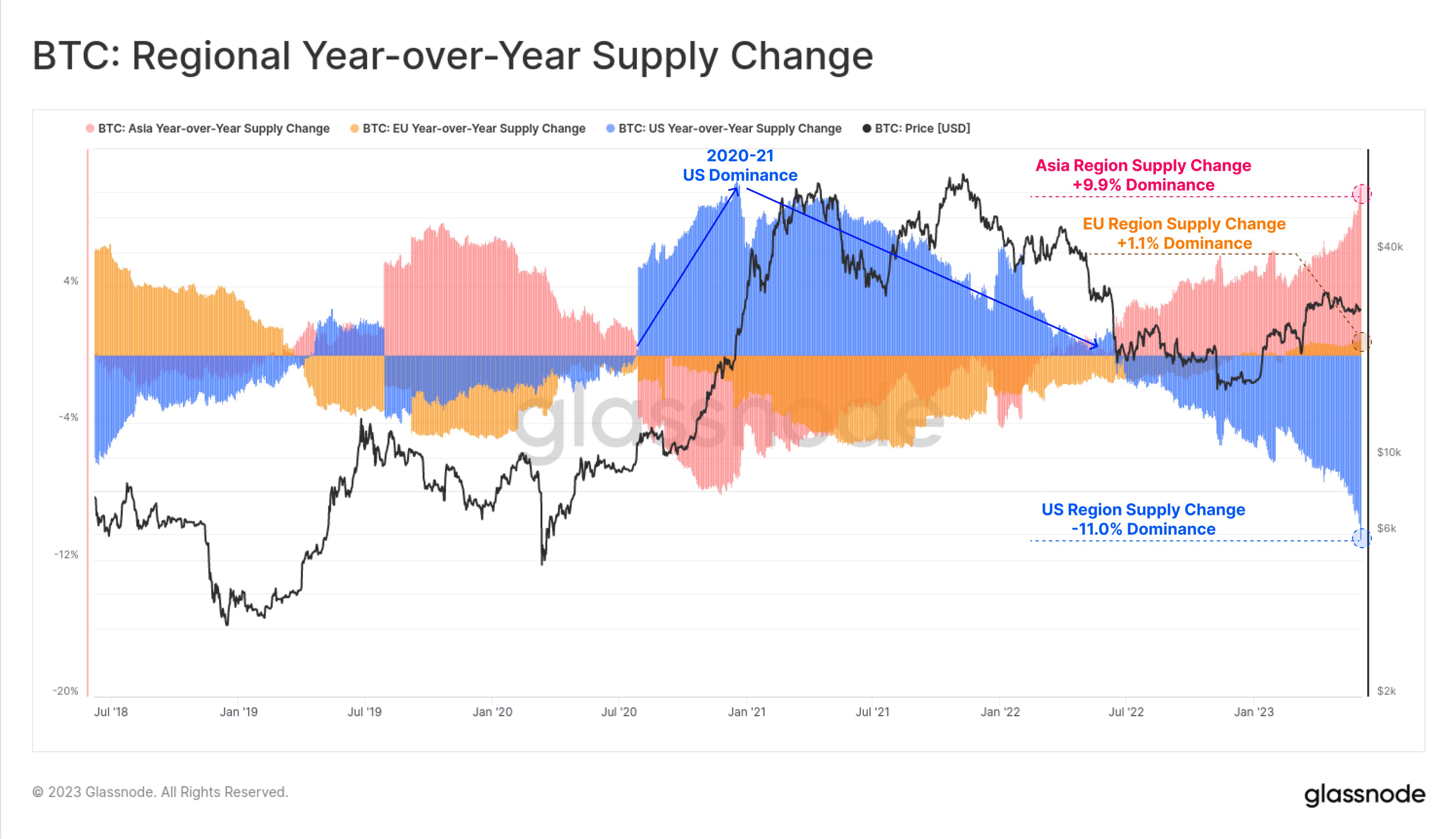The supply of Bitcoin in the United States has experienced a significant decline of over 10% in the past year, according to a report by Glassnode. This decline coincides with a notable increase in Bitcoin activity in Asia, as the share of U.S. supply dwindles over the past two years.
The shifting landscape of Bitcoin ownership and trading has prompted Glassnode to analyze the migration of BTC supply worldwide, particularly observing a movement away from the U.S. and towards Asia.
Since mid-2022, the amount of Bitcoin supply held and traded by U.S. entities has decreased by more than 10%. Meanwhile, Europe’s share has remained relatively stable, indicating a redistribution of Bitcoin from west to east. Researchers at Glassnode commented on the clear divergence in the year-over-year BTC supply change based on geographical regions, highlighting the reversal of U.S. supply dominance since mid-2022, with a decline of 11%.
Glassnode utilizes a probabilistic approach at the entity level to determine the geolocation of Bitcoin supply. By correlating the timestamps of transactions created by an entity with the working hours of different geographical regions, the probabilities for each entity’s location in the U.S., Europe, or Asia are determined. This methodology allows for a comprehensive analysis of the global distribution of Bitcoin.
The year-over-year supply change reveals a declining U.S. share starting in March 2021, further accelerating from May of this year. These findings coincide with significant geopolitical shifts in the crypto landscape. Hong Kong, for instance, recently authorized exchanges to offer trading services. At the same time, in the Western world, the United States initiated legal proceedings against major cryptocurrency exchanges, marking a crucial moment for the industry.

Bitcoin U.S. Year-over-Year Supply Change chart. Source: Glassnode
Brian Armstrong, the CEO of Coinbase, one of the exchanges targeted by the legal action, expressed his concerns regarding poor regulation that could disadvantage the United States.
In an opinion piece for MarketWatch, Armstrong emphasized the need for smart and bespoke regulation, drawing a parallel to the 1990s and early 2000s when the U.S. successfully defined the Internet Age. He called upon Congress to seize the historic opportunity presented by cryptocurrencies and pass comprehensive legislation that ensures consumer protection and fosters innovation. This plea underscores the importance of proactive regulation in shaping the future of the crypto industry.
Disclaimer: This article does not provide investment advice or recommendations. Every investment and trading decision carries risks, and readers should research before making any decisions. The purpose of this article is to offer general information and should not be interpreted as legal or investment advice. The opinions and views expressed in this article are solely those of the author and do not necessarily reflect the opinions and views of Copaly.

